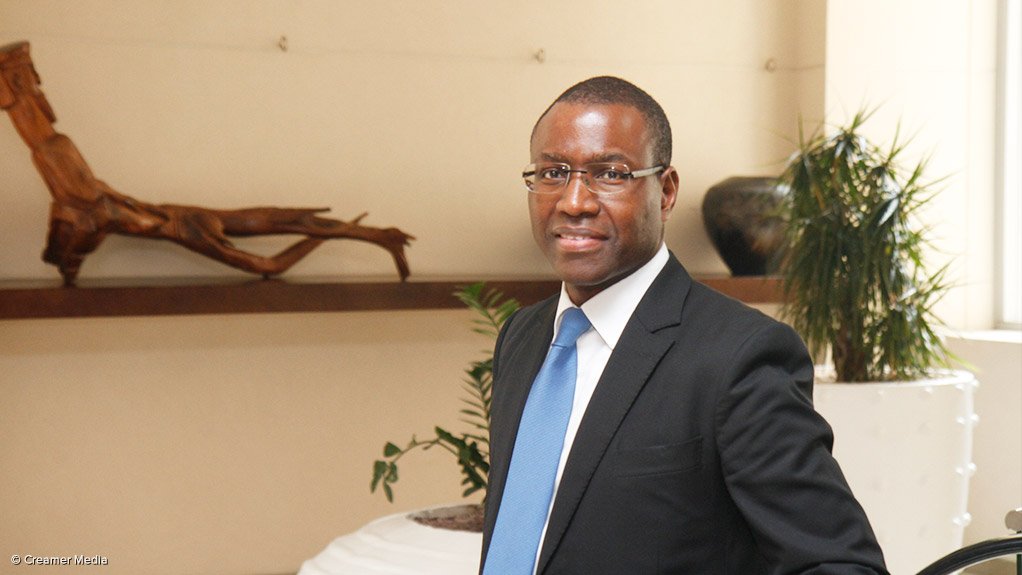The African Development Bank (AfDB), which has extended loan facilities worth a collective R20-billion to South Africa’s power utility Eskom, expressed confidence on Tuesday that the new leadership at the cash-strapped State-owned company would restore the group’s governance and creditworthiness.
Speaking at the tenth edition of the Africa Energy Indaba in Johannesburg AfDB VP for power, energy, green growth and climate change Amadou Hott revealed that the bank had recently held “very good discussions” with Eskom.
“We can say that Eskom is back, with the new board . . . [and] the will to transform governance. I think all that has made us really feel confident.”
The development finance institution was, thus, willing to continue supporting the South African utility, holding the view that “things will be drastically different at Eskom going forward”.
“We have supported Eskom strongly in the past and we intend to strongly continue supporting Eskom. With this new leadership in place, many things will happen over the next few months and that will be very positive.”
Hott’s statement came against the backdrop of a severe liquidity crunch at Eskom, which resulted in the Public Investment Corporation (PIC) advancing an emergency one-month loan of R5-billion to help the utility avoid a default, as well as to provide it with time to raise R20-billion from commercial lenders to help it meet looming debt obligations.
Eskom had been forecasting negative cash flow of R10-billion for the first week of February and the PIC argued, in the absence of its loan, there was a risk that Eskom would default on its commitments. The PIC said such an event would have posed a threat to the economy, the country’s fiscal balance, as well as the PIC’s own R95-billion exposure to Eskom.
The AfDB statement also followed news that the Institute for Accountability in Southern Africa had written to Eskom chairperson Jabu Mabuza requesting a detailed written explanation as to why the current board believed that, given its financial distress, the utility was not trading “recklessly” and in breach of the Companies Act.
In response, Eskom said its condensed group interim financial statements for the six months ended September 30, 2017, had been prepared in accordance with the recognition and measurement requirements of International Financial Reporting Standards, the presentation and disclosure requirements of International Accounting Standards 34 Interim Financial Reporting and in the manner required by the Companies Act.
The utility added that a review by independent auditors SizweNtsalubaGobodo found nothing to indicate the statements were not prepared in line with requirements.
However, the auditing firm did draw attention to ‘note 2’ of the interim financial statements, which described Eskom’s liquidity position for the period under review. It also highlighted the audit qualification on the completeness of irregular expenditure reported at March 31, 2017 in terms of the Public Finance Management Act, as well as the fact that governance-related challenges experienced by the organisation had a negative impact on Eskom’s access to funding facilities.
Nevertheless, SizweNtsalubaGobodo concluded that the board was satisfied that Eskom had access to adequate resources and facilities to be able to continue its operations for the foreseeable future.
Hott argued that the lack of creditworthiness of African power utilities was a major constraint to addressing the continent’s electricity backlogs, pointing to a World Bank report that found only two of the continent’s 39 power utilities to be creditworthy.
“This means that governments are having to provide sovereign guarantees and, as we know, the way the International Monetary Fund calculates those contingent liabilities means that they are added to the total borrowing of the country and that limits what the country can do.”
For this reason, Africa’s utilities had to be transformed to have the “best managers, the best staff, the best governance” and to make them “bankable”.
OFF-GRID PUSH
In parallel the AfDB was paying increased attention to improving the energy access on the continent, having included power and lighting as the main priority in its ‘High 5’ campaign, which is also prioritising agriculture, industrialisation, transport and improving the quality of life of citizens.
In 2017, the bank invested $1.4-billion into the sector, which facilitated a further $5.2-billion in co-investments into energy projects. It also launched the ‘New Deal on Energy for Africa’, which aims to provide energy to 205-million people by 2025, with 75-million of those being connected through off-grid solutions.
He said the bank was increasingly optimistic about increasing access through off-grid solutions, but stressed that governments needed to support these developments as forcefully as they were currently supporting centralised grid programmes.
“Even if we received a quarter of that support for off-grid, we will see amazing results.”
Likewise the bank is planning to champion a more “aggressive” uptake of both off-grid and utility-scale renewable energy projects in light of the steep fall in the costs of technologies such as solar photovoltaic and onshore wind.
“We should not only embrace renewable technology because of the climate issues, because morally this is what we should do so we can leave a better climate for our children, but because it also makes economic sense,” Hott concluded.
EMAIL THIS ARTICLE SAVE THIS ARTICLE ARTICLE ENQUIRY
To subscribe email subscriptions@creamermedia.co.za or click here
To advertise email advertising@creamermedia.co.za or click here











